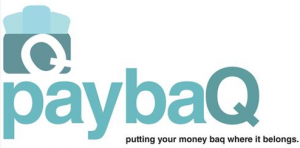Merry Thanksoween!: Eight Helpful Tips for Your Small Business and the Approaching Holiday Season
October 25th, 2011 | This post was written by mitalibIt’s almost November, and if you’re not already running around like a headless chicken preparing for the holiday season, you will be soon! Here’s some tips that’ll help get your small business get prepared.
- Create an attack plan: Have you started on that sales strategy yet for the holidays? Don’t wait too long! Your competition will start capturing your customers soon if you do not have a good plan! According to this article from the fantastic Inc Magazine, your approach to the holidays should be planned for all year long. So, if you haven’t started….what are you waiting for?
- Localize for your target audience: If you’re reading this, chances are that you’re a small business owner. If you’re a small business owner, chances are that you have a presence within your own community. So, are there any local traditions, events and meetings that you can take into account when making your attack plan? For example, say your community has a tradition of caroling every year or a large holiday event. Then, you might try to create a branding plan around those events or offer services/products that cater to those events to help you get your name out.
- Build a base: Be involved in your community. If you’re good with tip 2, you can probably skip this one. If you don’t have a presence, start building one… now. Also ramp up the social interactions in Twitter and Facebook. Now is the time to connect with customers and potential customers using these social tools.
- Consider sponsorships: Do something for the community. Perhaps sponsor a festival or some type of talk. Or if there’s a university nearby, get involved in some of their events. This is a great way to give back to the community and also get your business name out there so you are top of mind when people are shopping.
- Stock up on “bestsellers”: Stock up on products your customer wants. Once the holiday season gets rolling, it’s all about the items. Try and order extra too. That way, you might not run out if an item turns out to be more popular than expected.
- Be the best: This is the time when you get to interact with a lot of potential customers either on your website, through social media or in person in your store. Remember at all times make sure you, your business and your employees present a good image that way you give a reason for those customers to come back.
- Try new marketing tricks: This is a good time to experiment with offers, advertising and even some fun videos about your business and product/service. Who knows, one of the things you try may help you in the future and create some buzz around your small business.
- Be accommodating: This is a busy time for everyone. Try and be flexible about requests, questions and issues that arise with your customers. If they ordered something and there was a problem, try to be as accommodating as possible. You want these customers to come back. The customer is always right….especially around the holidays!
Hopefully, these tips will help you. Good luck and have a great holiday season!






 nge has been learning how my customers think. This meant studying what the market wants from a speaking coach. In the first year of starting liveyourtalk, I discovered that what I wanted to provide wasn’t necessarily what people in the tech industry wanted from a speech writer. It was also pretty difficult to figure out what language they used when creating content for live audiences. It took a while for me to realize that writing is very much grouped in the world of speech coaching. There are certain content needs that must be made easier.
nge has been learning how my customers think. This meant studying what the market wants from a speaking coach. In the first year of starting liveyourtalk, I discovered that what I wanted to provide wasn’t necessarily what people in the tech industry wanted from a speech writer. It was also pretty difficult to figure out what language they used when creating content for live audiences. It took a while for me to realize that writing is very much grouped in the world of speech coaching. There are certain content needs that must be made easier.




